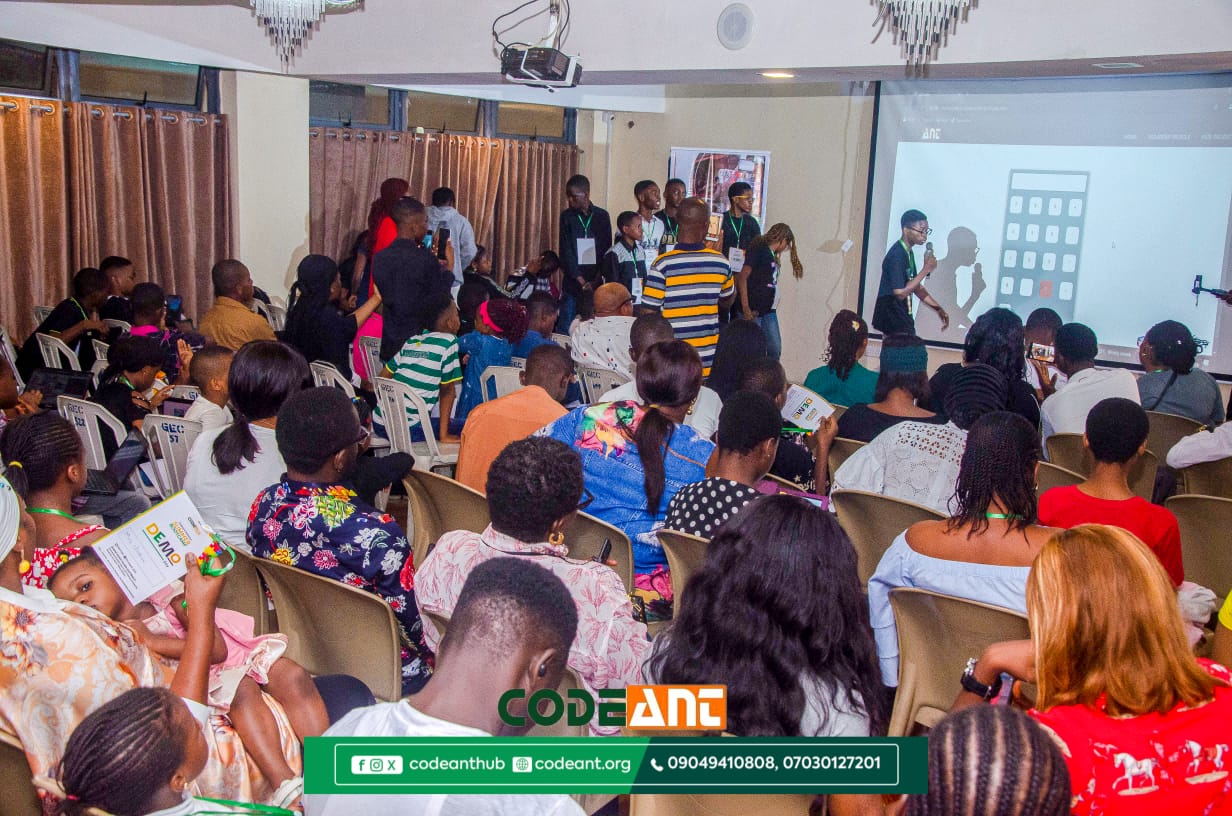By: Harriet Ijeomah
Despite the world’s rapid digital transformation, Nigeria’s education system still lags in integrating technology into primary and secondary school curriculums. According to a January 2024 survey by DATAREPORTAL, over 103 million Nigerians, representing 45.5% of the population, use the internet. However, many Nigerians involved in tech today have no formal education in tech-related subjects, as these were often not part of their formative schooling.
To address this gap, Codeant Technology, a social enterprise, has designed a three-month digital intensive training program specifically for children in primary and secondary school. The program aims to equip young learners with essential tech skills such as coding, programming, app development, and artificial intelligence. For as low as $20, students can enroll in the program and gain a strong foundation in the digital world.
Codeant’s initiative runs twice a year, during Easter and summer breaks, and has been operational for over four years. During this time, more than 1,000 students from southeastern Nigeria have been trained in various tech disciplines. This year, the 2024 summer cohort graduated over 80 students who have now acquired skills in app and game development, website creation, project management, AI, Python, and even public speaking.
One of the proud parents, Udeh Michael, shared how his son designed a business website for him after attending Codeant’s program last year. Impressed with his son’s newfound skills, Udeh enrolled his second child in this year’s summer cohort and even introduced two other parents to the program. Stories like these highlight the life-changing impact of tech education on both students and families.
The founder of Codeant Technology, Chidi Duru emphasized the pressing need to integrate tech education into Nigeria’s primary and secondary school curriculums. He explained that starting tech education at an early age would provide a solid foundation for students to build future careers in the digital economy. “Our vision is to train over 10,000 students by 2025,” he said, linking the program to the broader goals of SDG 4 (Quality Education) and SDG 5 (Gender Equality).
He also pointed out the significant gender disparity in tech education, noting that many parents and guardians still view tech as a male-dominated field. “We have noticed low participation from female students, as parents often believe tech is not suitable for girls,” he said. To counter this, Codeant has launched awareness campaigns to educate parents on the importance of allowing girls to explore tech education.
To reduce the limitation Codeant offers discounted registration fees for girls, encouraging greater female participation.
In its ongoing effort to make tech education accessible to all, Codeant is developing programs aimed at reaching students in rural communities across Nigeria to extend its reach, Codeant hopes to build a generation of tech-savvy students who will be prepared to thrive in an increasingly digital world.
Through initiatives like these, Codeant is not only addressing a critical educational gap but also fostering a more inclusive, tech-literate future for Nigeria’s youth.





